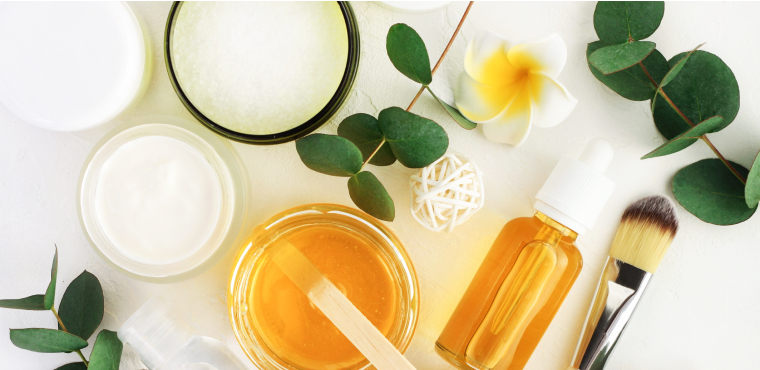
Jun 12, 2020
Why Vitamins Continue to Top the Marketing in Skincare
One of the best ways to market to your customer base is to inform or educate them. This is especially effective when the things you are educating them about can benefit them personally. Boasting about the features of your product is what advertising and marketing are all about. With private labeling skincare products, what you need to talk about is what your skincare does, and how it does it. Educating consumers about what vitamins do for your skin helps boost your brand’s credibility, and leads to them making informed buying decisions.
Marketing to Your Strengths
Selecting a specific theme or angle for your marketing strategy will also be heavily informed by the demographic of your target audience. If you are catering to an older market, your product might contain Retinol or Vitamin A. That would be on the top of your list to talk about when educating consumers about your product. Vitamin A is the star ingredient in many anti-aging skin care formulas. If reparative skincare is your niche, you’ll be sure to inform your audience about the wonders of Vitamin E. Choose your vitamin and boast about its benefits in your marketing.
Marketing Younger Skin
Retinol or Vitamin A is vital for the skin’s regeneration, treating age spots, wrinkles, and rough skin caused by sun exposure. It helps promote cell turnover, increasing firmness and elasticity in your skin. Retinol stimulates collagen production so the skin becomes plumper and younger-looking. Also consider creating a formulation with retinoic acid, which is the active form of retinol and becoming more popular in newer formulations. Retinol became popular in the 1990s when it was first used in skincare formulations for anti-aging purposes. Marketing your brand with retinol at center stage will definitely get you the attention of consumers interested in anti-aging products.
Marketing Brighter Skin
Vitamin C is introduced early in our lives as generally great for you, and there are more reasons why than you remember. Known to help brighten the skin, Vitamin C actually inhibits free radicals that attack the skin to cause wrinkles, sagging, and aging. It also combats hyperpigmentation or dark spots by inhibiting the enzyme tyrosinase, which in turn helps to prevent melanin production. It significantly lightens pigmentation, targeting the dark spots, but does not lighten normal skin. When any brand boasts about an excellent skin brightener, it almost certainly contains Vitamin C. Quality brands invest in formulating a stable Vitamin C that doesn’t oxidize over time.
Marketing Regenerated Skin
Vitamin B12 makes skin look younger by boosting collagen, elastin, and hyaluronic acid. Hyaluronic acid especially is excellent at hydrating the skin, it is a humectant which helps the skin better absorb moisture and then locks it in. When B12 is absorbed in the skin it boosts cell metabolism, speeding up regeneration and making tired skin look young again. Applying it topically is also better than taking it orally since as much as 99% of what we ingest is not absorbed.
Marketing Repaired Skin
Vitamin E helps to reduce the appearance of scars and also moisturizes cracked or dry skin. With the “entourage effect”, it also assists in getting more benefits from other vitamins like Vitamin C when used in conjunction. Studies show they work better together to protect the skin from sun damage. Many after-sun products also contain Vitamin E to heal the skin, acting like a first-aid vitamin. Consumers who are looking to treat sunburned or dry and damaged skin are most likely already looking at their favorite Vitamin E oil. Educate them further about how you’ve incorporated it into your product so that they can reap the maximum benefits.
Marketing Soothed Skin
Alpha Lipoic Acid (ALA) is an antioxidant and potent anti-inflammatory. It reduces redness and soothes blotchy skin that is the result of eczema or rosacea. ALA also increases your skin’s exfoliation capacity, so that it sheds old skin cells and there isn’t a buildup. It is also an antioxidant. Be careful with higher concentrations, such as 5% or higher, since it can cause a stinging or burning sensation on the skin.
These are only a few examples of vitamins and minerals that are already well-known for their healing abilities in existing skincare formulations. An ingredient and it’s touted benefits have made hundreds of skincare brands a lot of money, so why shouldn’t you be one of them? Boast about the features of your product like any other business owner would, in this case, these features are the vitamins you opt to include in your formulations.